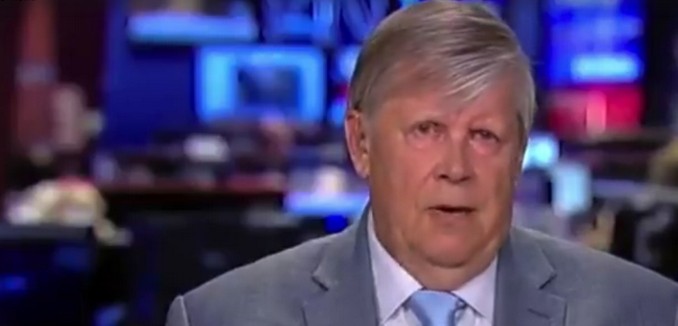The International Atomic Energy Agency (IAEA) has sufficient cause to reopen its investigation into the possible military dimensions (PMD) of Iran’s nuclear research, the agency’s former deputy director told Fox News on Sunday.
Although the IAEA made a “political” decision in December 2015 to end its investigation into the PMD of Iran’s nuclear research, unresolved issues and new revelations—including fresh allegations that Iran is working with North Korea on its ballistic missile program—provide sufficient reasons for the IAEA to reopen the PMD investigation, Olli Heinonen told Fox’s James Rosen.
Iranian opposition group says North Korea helps Iran grow ballistic missile program; @JamesRosenTV goes in depth with Dr. Olli Heinonen. pic.twitter.com/Xg2Bc9bmth
— Fox News (@FoxNews) June 25, 2017
While Heinonen said that Iran is not necessarily in violation of the nuclear deal, formally known as the Joint Comprehensive Plan of Action (JCPOA), “the IAEA cannot prove that everything is okay and all nuclear material is under IAEA verification scheme,” he added.
Heinonen’s remarks echoed the assessment he shared in a recently published research memo (.pdf).
In the memo, Heinonen explained that the PMD investigation ended in 2015 “in order to proceed to the JCPOA’s Implementation Day, which occurred on January 16, 2016.”
“Despite Tehran’s deficient cooperation, the IAEA found some man-made uranium particles at a location in Parchin, where an explosive test chamber associated with PMD studies was believed to have been located and subsequently dismantled,” Heinonen recalled. “The IAEA concluded that Iran’s explanations with regard to the purpose of the chamber did not match its own findings. Such questions would normally trigger follow-up actions such as taking of additional samples, visits to relevant sites, and interviews of relevant persons, according to standard safeguards practices. Subsequent IAEA reports, however, do not indicate that any such steps have been conducted – a situation very likely attributed to the Board’s decision to close the PMD file.”
Under the terms of the nuclear deal, key restrictions on the Islamic Republic, including on its missile development program and its arm trade, will expire once the IAEA reaches a “broader conclusion” that its nuclear program is peaceful.
“With the current terms of the JCPOA that ultimately allows Iran to develop and deploy a more sophisticated nuclear program down the road,” Heinonen concluded, “a premature broader conclusion drawn along with an unsatisfactory PMD outcome is both dangerous and irresponsible in creating unwarranted complacency on the nature of Tehran’s nuclear program.”
Heinonen and David Albright, a former weapons inspector and currently president of the Institute for Science and International Security, co-authored an analysis in May on remarks made by Ali Akbar Salehi, head of the Atomic Energy Organization of Iran. Salehi suggested that Iran was pursuing the construction of advanced centrifuges that would significantly reduce its breakout time to build a nuclear weapon.
Earlier this month, Reuters reported that Iran’s stockpile of heavy water, which can be used to produce weapons-grade plutonium, “reached 128.2 tonnes, just below a 130-tonne limit,” according the IAEA.
In April and November 2016, Iran was found to be in violation of the 130-ton cap on heavy water imposed by the nuclear deal.
[Photo: Facebook]




